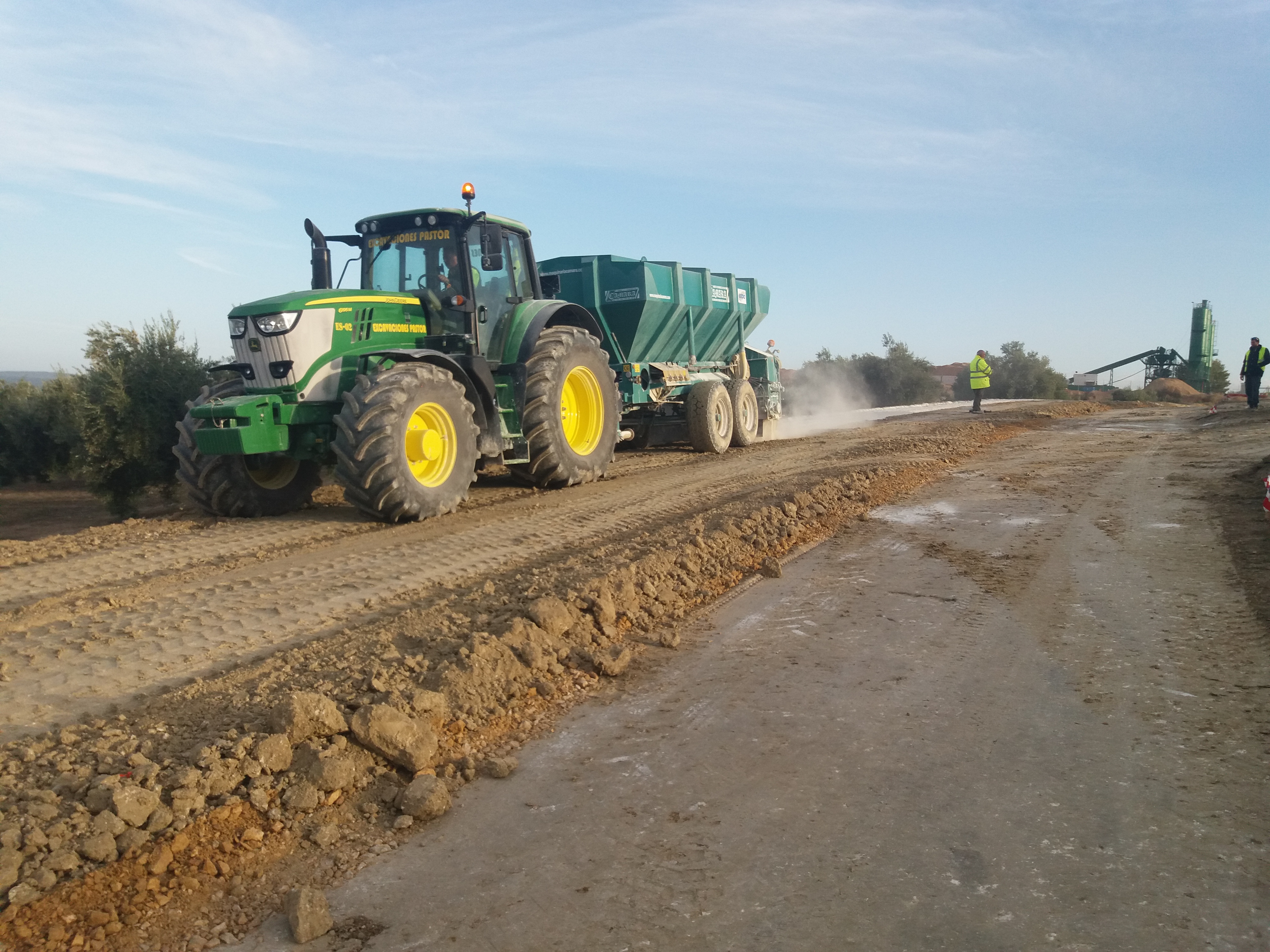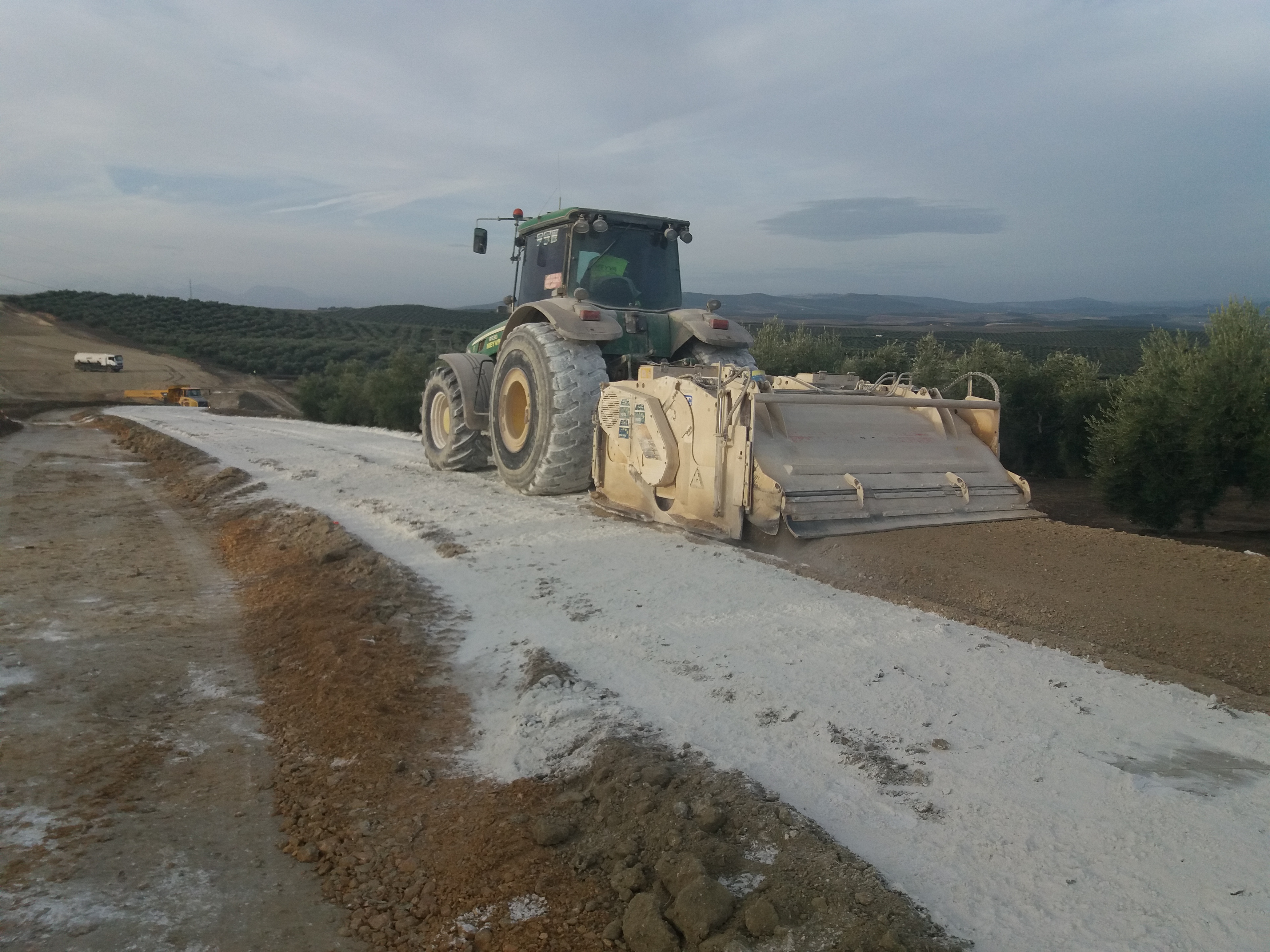In the road-paving process, it is essential to stabilize any terrain that is unsuitable for use in the asphalt package. Typically lime is used as a stabilizing agent, but lime is costly and the calcination process can create significant CO2 emissions.
Therefore, new waste- and byproduct-based components are being studied, which are more sustainable for the environment and more economically efficient.
From this emerges the Ecaryse project. We are testing a series of nanopolymers, made from nanosilica, on a pilot section in Villacarrillo (Jaén). These products are designed for commercial use.
“At the Universidad de Córdoba, the project partner, these products are tested in the lab to create different working formulas; Sacyr then approves the use of these products and working formulas, designing and executing a series of test sections to assess their efficacy, in other countries as well,” explains Francisco Javier Mateos, Project Manager in the Innovation and Knowledge area of Sacyr’s Construction’s R+D department.

Use of local materials
“Under the asphalt layer, there are soil packets with material that has been compacted, and any unsuitable terrain is treated with a stabilizing agent. Polymers are actually chemical products that are added to the soil to stabilize it, replacing lime,” says Mateos. “There are areas in the world where access to lime is difficult, like Colombia and Chile, where polymers are already in use,” he adds.
“We want to understand the properties, determine if they truly stabilize the soil, and assess their economic viability. Certain polymers have worked, giving the terrain characteristics similar to lime,” Mateos explains.
Normally, local materials are used to avoid importing them from elsewhere, thus reducing costs and transport-related emissions. Through excavation and earthworks, the materials are extracted and used.
“In these processes, we reuse materials to which we add the additive. The product is diluted in water, mixed into the soil, dispersed, and compacted. It provides good support capacity, swells less with water, and insulates from moisture,” adds Narciso Pulido, Head of Sacyr’s Construction’s R+D department.
